Parents criticise school's deaf teaching provision
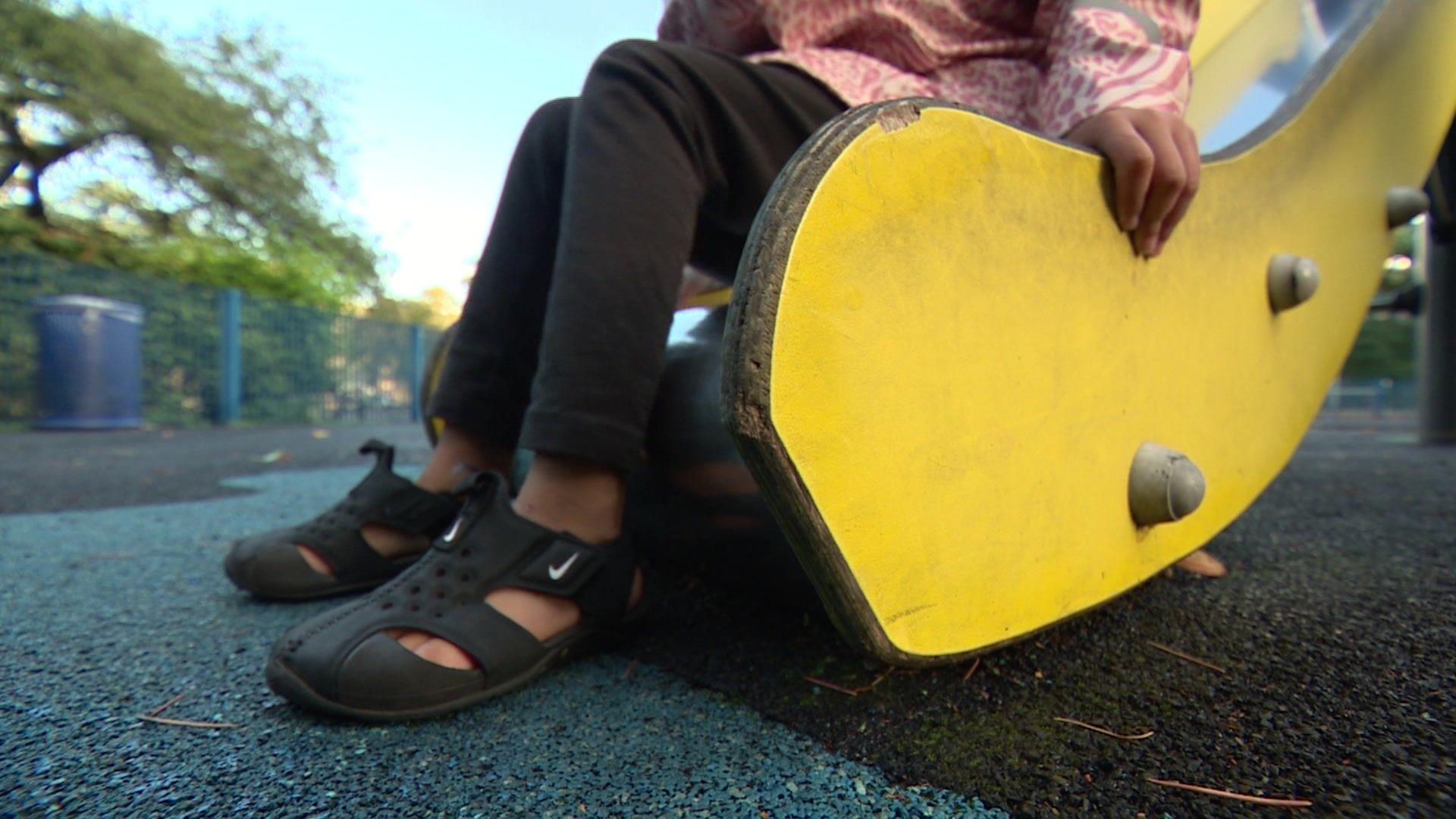
Two parents have raised concerns about the impact on their children after not having access to a qualified Teacher of the Deaf
- Published
The parents of two deaf children have criticised a school in east London for what they say is a failure to cater to their children's special educational needs.
Hena Begum's daughter Aiyla, and Shahima Kazi's son Muhaymin, have both been in nursery at Culloden Primary School in Poplar.
Both parents are concerned the school is not meeting the recommendations in their child's Education, Health and Care Plans (EHCP) and that they have only had access to trainee Teachers of the Deaf (ToDs) rather than any fully-qualified ones.
Culloden Primary School said it is trying to recruit staff "amid a national shortage" and is "providing our pupils with the best possible support".
A qualified ToD is a qualified teacher who has completed an additional mandatory qualification so they have expertise in teaching deaf learners.
The parents have been receiving help with their complaints from the National Deaf Children's Society, which says although there are 28 deaf children at Culloden there is no qualified ToD.
The school - a mainstream academy with specialist provision for children with hearing impairments - previously had two qualified ToDs.
At the end of the 2023 academic year one left and one went on maternity leave.
A replacement early years teacher started their ToD training this month.
Aiyla has been profoundly deaf since birth and has a cochlear implant, and her mother said the family previously received "really good support" from her deaf support nursery.
However, when Aiyla transferred to the deaf support unit in Culloden's nursery, Ms Begum alleged "everything started going pear-shaped".
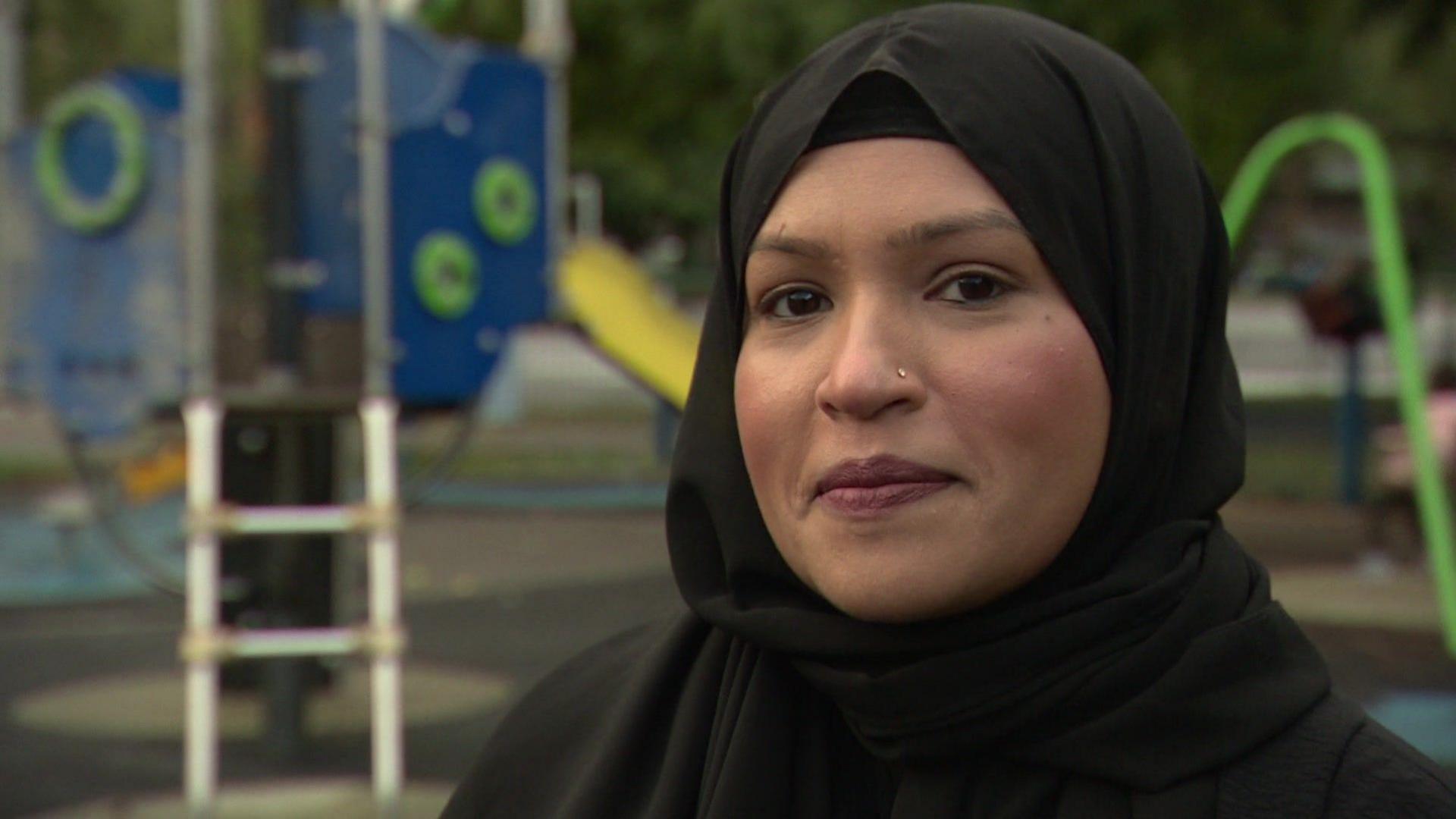
Hena Begum said the school kept giving "excuses" over why ToD vacancies hadn't been filled
Ms Begum explained Culloden was the only school she saw which offered staff who could provide "total communication" for Aiyla, including British Sign Language (BSL) signing.
But after starting there she said her daughter only received support from a qualified ToD for six weeks before they "went on maternity leave".
After this, she said the school told them it advertised the vacancy but the role still hadn't been filled by the following autumn term.
Ms Begum added the school told them there was another qualified ToD in the school who could help Aiyla, but they eventually also left.
She claimed the school kept giving "excuses" as to why candidates hadn't accepted offers for the roles and said she was concerned the school wasn't meeting the recommended support in Aiyla's EHCP.
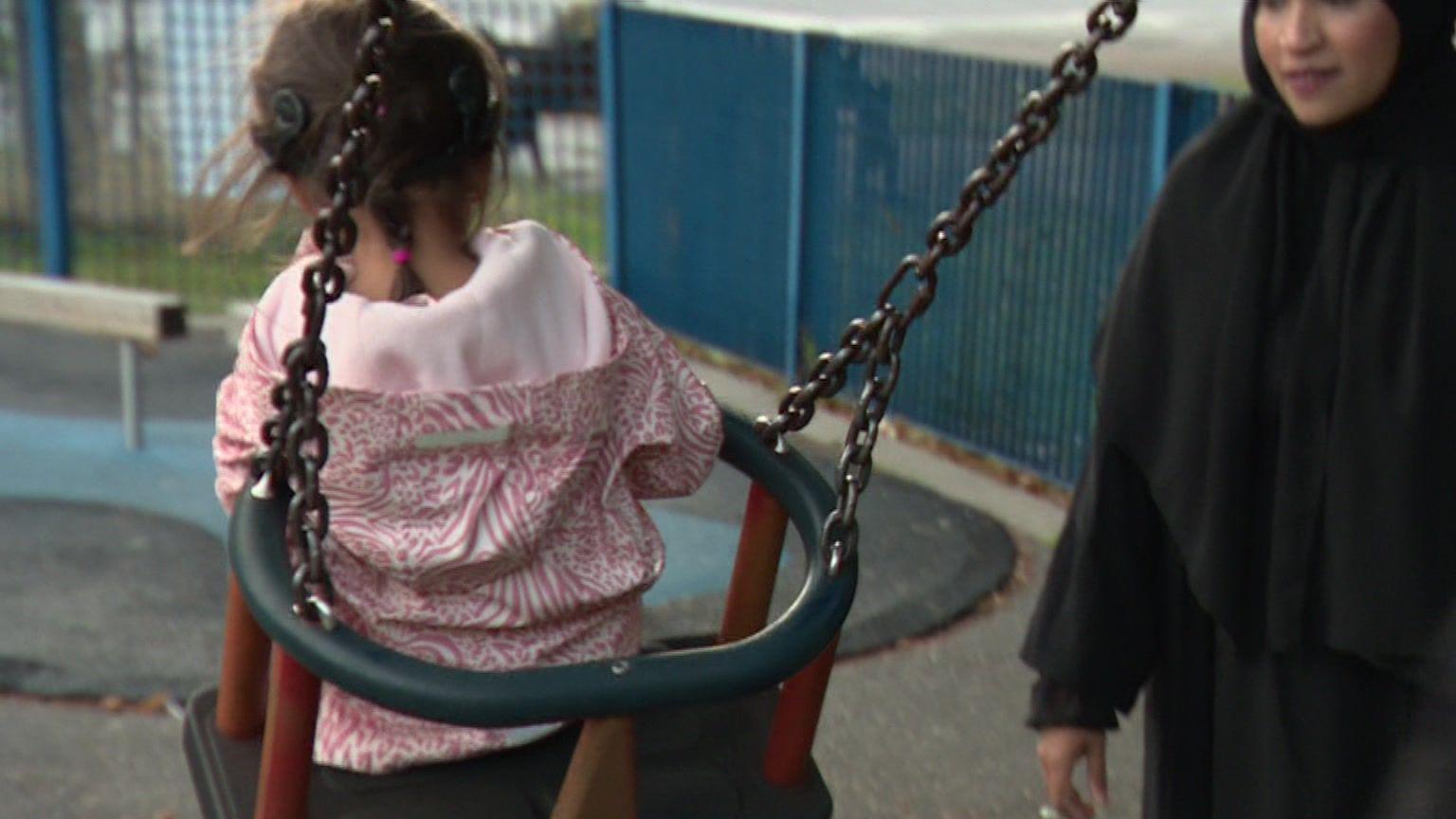
Ms Begum says Aiyla's development has "really gone backwards" since Culloden struggled to find a replacement qualified ToD
The school has provided a trainee ToD to support Aiyla, but Ms Begum has said this is "not enough" because it should also provide "total communication" including BSL signing, as well as smaller group work, or Aiyla "is not going to learn".
Ms Begum added her daughter's progress is delayed and "she gets frustrated really easily because she can't communicate".
"It's very, very difficult to know what she wants... either through sign, visual or even verbally - she should have some kind of way of communicating with us," she said.
"It's really gone backwards."
Hundreds of SEN kids missing from school - report
- Published10 September 2024
Quarter of Westminster primary school places empty
- Published9 September 2024
Department for Education (DfE) guidance states it is not a requirement for pupils to have a fully-qualified ToD rather than a trainee, external, "if the headteacher is satisfied that the person in question is in the process of obtaining the relevant mandatory qualification" within three years.
The British Association of Teachers of the Deaf suggests there be at least one qualified ToD for every six deaf or hearing impaired children, external, but told BBC London there is no government guidance or rule on this.
Meanwhile Ms Kazi said her son Muhaymin has also suffered as a result of the school's struggle to recruit a qualified ToD.
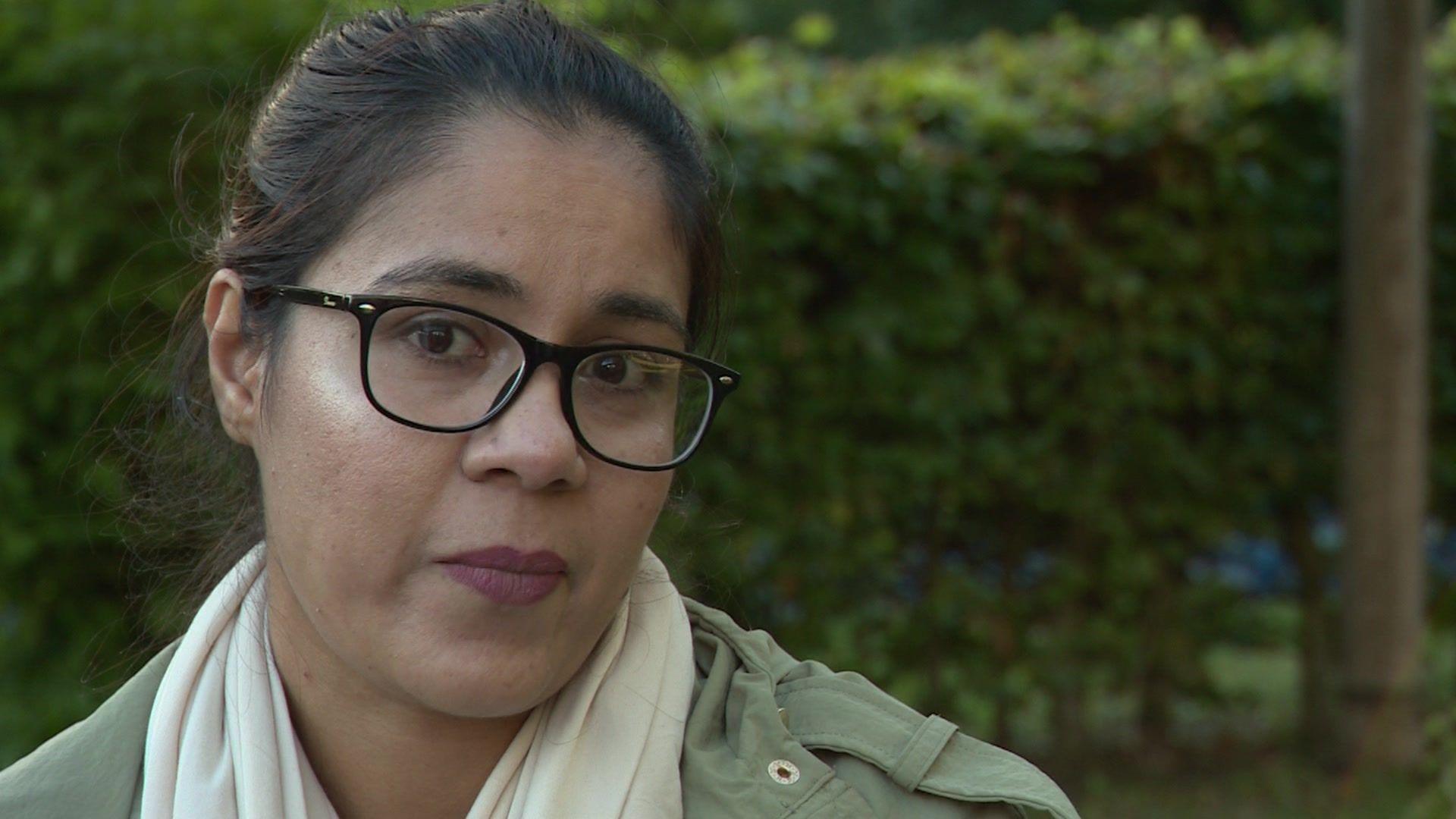
Shahima Kazi said she suffered mental health problems after her son's teaching support changed
Muhaymin has progressive hearing loss and has a cochlear implant in one ear, using a hearing aid.
His mother said she also chose Culloden because it offered BSL signing alongside verbal teaching and that it had a qualified ToD at the time.
Like Ms Begum, she said this teacher went on leave weeks into the term.
She said when the school "couldn't find" a qualified ToD to replace them, her "main concern" was that her son would not get the "proper education he required".
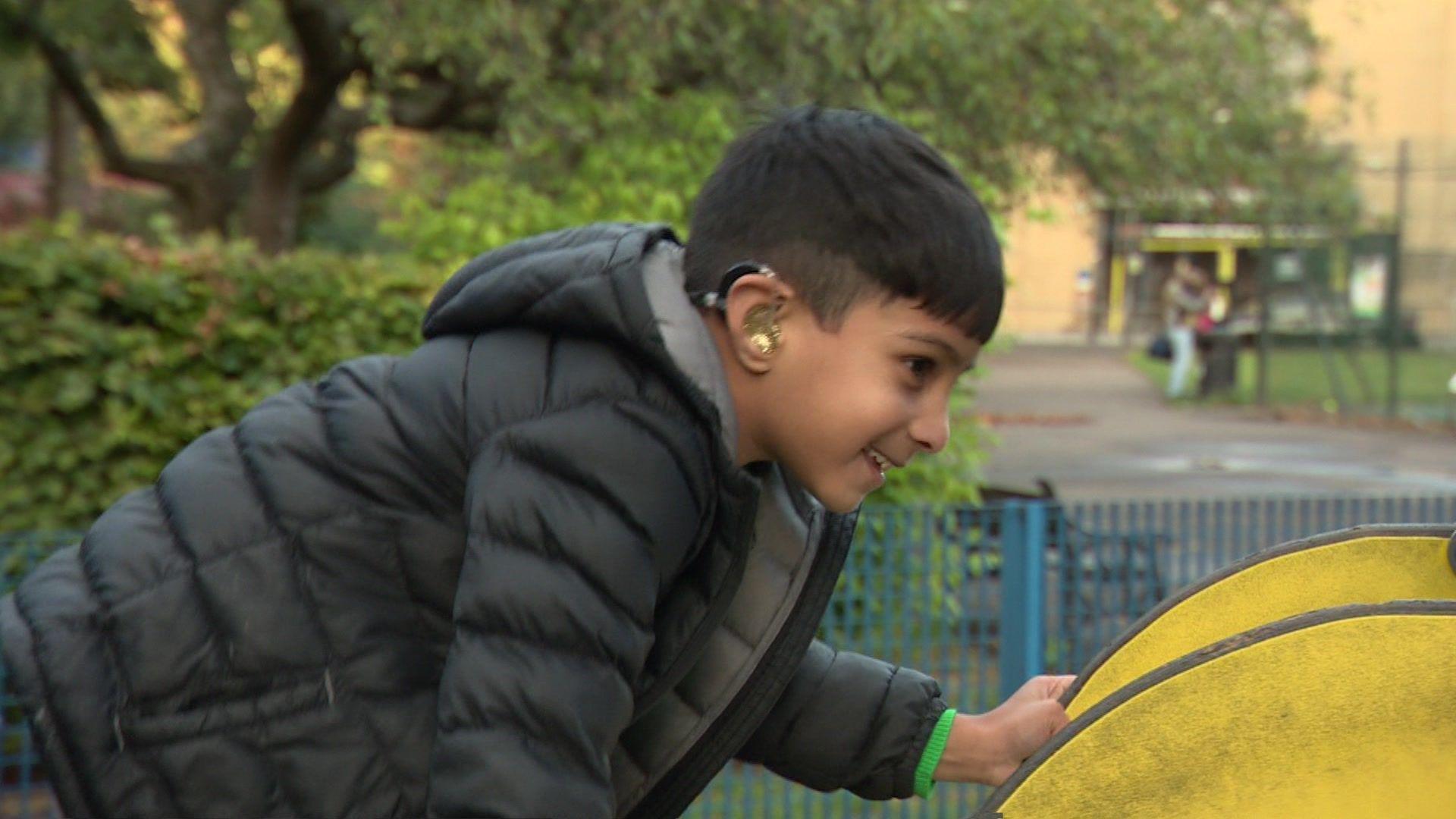
Ms Kazi said her son Muhaymin was "doing less signing" which she alleges is due to the lack of a qualified ToD
Ms Kazi said her son's EHCP recommends one-to-one or small group intervention.
She told BBC London she remains concerned about how well a trainee ToD would do this without being fully qualified.
"A qualified teacher of the deaf, the amount of deaf awareness you have, the mainstream teacher wouldn't have the knowledge to support our children," she claimed.
She also said the change in support had impacted on her son's development.
"He was quite frustrated. He used to be a good signer before because I used to sign with him.
"He was doing less signing; he was pointing at things."
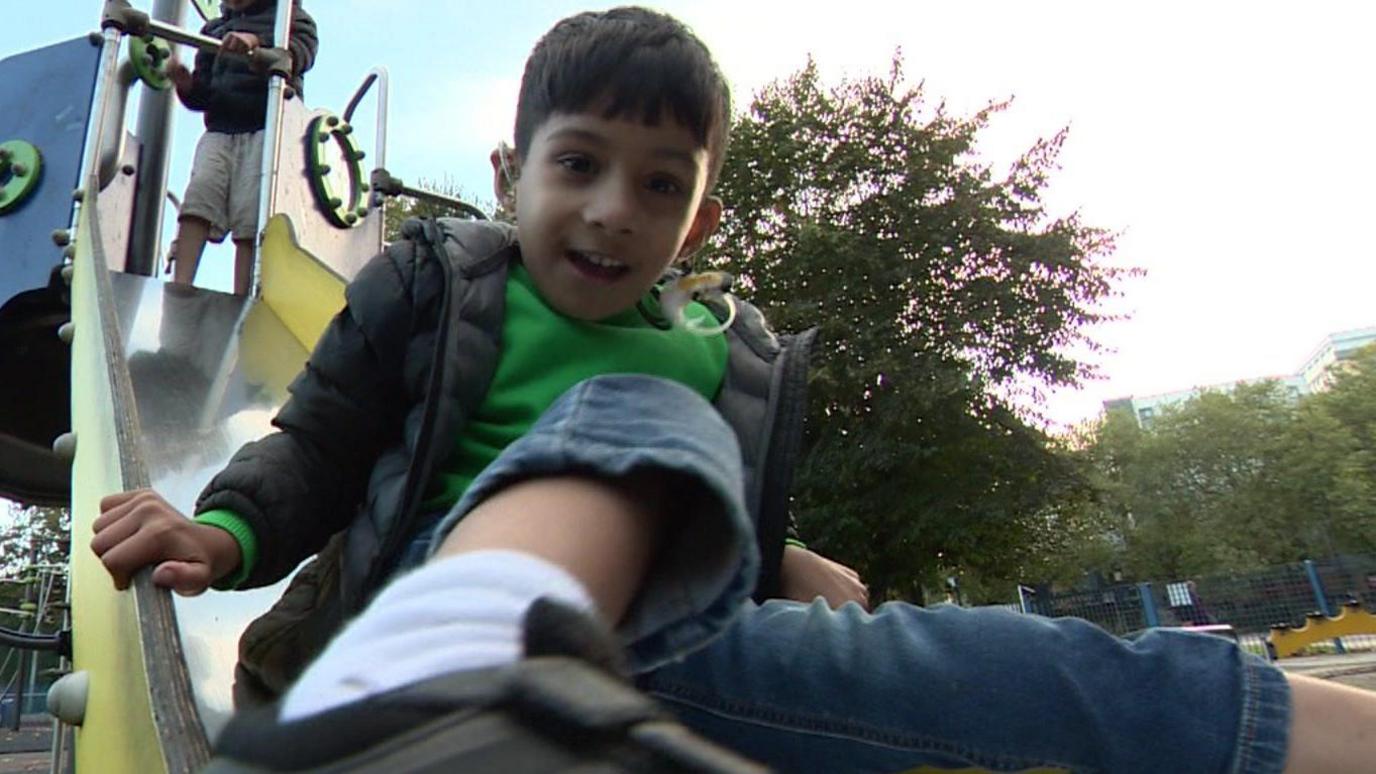
Mz Kazi said she chose to transfer Muhaymin to a dedicated school for the deaf, which was a "tough decision"
"His speech is not clear yet, it was hard to understand what he wants," she continued.
"He used to throw his hands and legs everywhere if you didn't understand him."
She also said it had an effect on her mental health and she didn't like to talk about the problems, and ended up leaving the house less than before.
She was "upset" and "worried", she said, because she "couldn't help him" and had to spend extra time making sure he would "calm down".
Eventually, she chose to transfer Muhaymin from Culloden to a dedicated school for the deaf which has a qualified ToD and several deaf staff - but she described the move as a "tough decision".
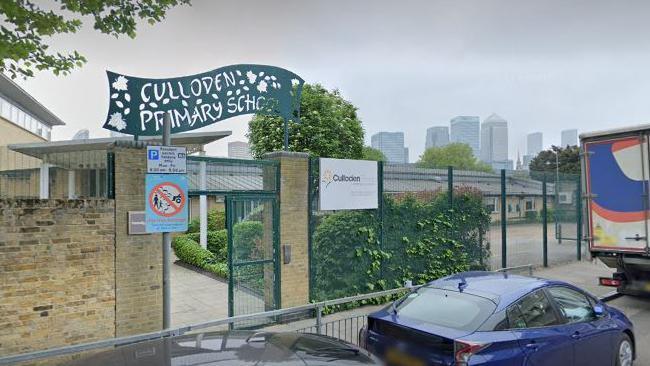
Culloden Academy said its deaf support unit is currently staffed by two teachers who are trainee ToDs, as well as BSL-trained staff
Tower Hamlets Council referred BBC London to the school for a comment.
Culloden Academy said its deaf support unit is currently staffed by two teachers who are trainee ToDs, as well as a BSL level three teacher and eight BSL-trained support staff.
It added both trainee ToDs also receive external consultancy support from a headteacher who is a qualified ToD, and the unit has access to an external speech and language team, BSL teacher, and external audiology support.
In a statement, the academy said it is "making every possible effort to recruit staff amid a national shortage of qualified ToDs" and is being supported by Tower Hamlets Council.
"In the meantime, we are providing our pupils with the best possible support using highly experienced teachers who are completing their ToD training," it continued.
The DfE has been contacted for a response.
Listen to the best of BBC Radio London on Sounds and follow BBC London on Facebook, external, X, external and Instagram, external. Send your story ideas to hello.bbclondon@bbc.co.uk, external